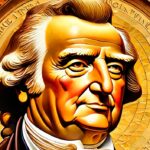Hey, history buffs! Let’s crack the Hindenburg Enigma. Was Field Marshal Paul von Hindenburg, the legendary WWI hero, losing his mental acuity when he became Germany’s president? Did his declining health contribute to Adolf Hitler and the Nazis taking over? We’re gonna dive into his legacy, his mental state, and how Germany’s fate hung in the balance during his presidency. Join us on this historical mystery ride!
The Weight of Legacy: Hindenburg’s Troubling Presidency
Paul von Hindenburg: the name resonates through history. A war hero, a president, a figure shrouded in controversy, especially regarding his later years. Did his age and potentially declining health pave the way for one of the darkest chapters in human history – the rise of Hitler and Nazi Germany?
Hindenburg, a career military man, rose to prominence during World War I. His victories, especially the Battle of Tannenberg, turned him into a living legend, a symbol of German strength and resilience. After the war, Germany lay in ruins, its people yearning for stability and guidance.
Hindenburg, initially reluctant to enter politics, accepted the presidency of the fragile Weimar Republic in 1925. His presence, the aura of the war hero, brought a sense of calm. But time, an unstoppable force, takes its toll. Already in his late 70s when he became president, Hindenburg was aging. Whispers started circulating, questioning his sharpness and ability to handle the pressure. Doubts crept in, fueled by concerns about his declining health.
Power, it seems, often attracts those who crave it. People close to Hindenburg, his advisors, recognized his vulnerability. Did they manipulate him, taking advantage of a once-sharp mind now clouded by age? It’s a question that continues to be debated by historians.
Then came the fateful year 1933. Germany, still reeling from the Great Depression, looked for answers, for someone to blame. A charismatic firebrand named Adolf Hitler saw an opportunity, skillfully exploiting the nation’s anger and fear. Hindenburg, perhaps swayed by advisors, perhaps no longer able to fully grasp the gravity of the situation, made a decision that would seal his legacy, and Germany’s fate: he appointed Hitler as Chancellor.
The rest, as they say, is history. Hitler, a master manipulator, quickly consolidated his power, transforming Germany into a dictatorship. The world watched in horror as the Nazi regime unleashed its reign of terror.
Hindenburg’s role in this tragedy remains a subject of intense scrutiny. Did his age and possible senility blind him to Hitler’s true nature? Or was he a willing participant, knowingly handing the reins to a tyrant?
There’s no easy answer, no smoking gun. We can analyze historical records and scrutinize the accounts of those who knew him, but a definitive judgment remains elusive. The passage of time, while crucial for historical perspective, also obscures the full picture.
What remains is a cautionary tale. A story reminding us that power, in the wrong hands, can be a dangerous weapon. It also forces us to confront the uncomfortable truth that even the most revered figures can make devastating mistakes. Hindenburg’s legacy serves as a reminder to be vigilant, to question those in power, and to recognize that history, like life itself, is full of complexities and contradictions.
The Twilight Years: Hindenburg at 86
By 86, Hindenburg’s health had deteriorated significantly. He was battling lung cancer, and his weakening condition likely made him susceptible to the influence of those around him with their own agendas. This was especially true when it came to figures who believed Germany needed a strong, authoritarian leader.
It was within this context that Hindenburg made the fateful decision to appoint Adolf Hitler as Chancellor in 1933. Some historians suggest that he might have seen Hitler as someone he could control, while others believe he was pressured into the decision by those who saw Hitler as their best chance to gain power.
Regardless of his reasoning, Hindenburg’s actions at the age of 86, a time when many are enjoying retirement, ended up shaping the future of Germany – and the world – in profound and tragic ways. His death just a year later, in 1934, removed the last obstacle to Hitler’s complete control of the country, marking the beginning of Nazi Germany’s dark chapter in history.
Decoding “Hindenburg”: More Than Just an Airship
The name Hindenburg often evokes images of a fiery airship disaster. But to truly understand its significance, we need to dig deeper into the life of the man himself – Paul von Hindenburg – and the tumultuous times in which he lived.
Imagine Germany in the early 20th century, a nation grappling with immense change and turmoil. Hindenburg, born into a family steeped in military tradition, rose through the ranks to become a key figure in World War I. He was the top general, making life-or-death decisions during a conflict that would reshape the world.
After the war, Germany was in ruins, politically and economically devastated. It was during this time of profound uncertainty that Hindenburg, already a war hero to many Germans, stepped into the role of President. People hoped he would be their savior, but history, as we know, is rarely that simple.
While respected, Hindenburg was also a product of his time – a conservative man rooted in traditional beliefs, not known for his flexibility. This rigidity played a role in his dealings with a rising political star named Adolf Hitler. Some historians suggest that Hindenburg initially had reservations about Hitler, whose message was radical, even dangerous. But Germany was vulnerable, and whispers grew louder that perhaps Hitler could restore order.
Pushed by advisors and facing a nation yearning for stability, Hindenburg made a fateful decision: he appointed Hitler as Chancellor of Germany. While not yet all-powerful, it was a foot in the door, and Hitler, a shrewd political operator, knew how to force it wide open. The turning point came with the Enabling Act, a piece of legislation, signed by Hindenburg, that essentially handed Hitler dictatorial powers.
This is where the “meaning” of “Hindenburg” takes on a new dimension. Some see him as a tragic figure, a man who, perhaps with good intentions but flawed judgment, unwittingly paved the way for one of history’s most horrific regimes. Others argue that his actions, even under pressure, were a betrayal of the very principles he claimed to uphold.
Hindenburg’s legacy is a muddy pool, reflecting both the hero he once was and the enabler he became. Did he fully comprehend the monster he was unleashing? We can only speculate. But his story serves as a potent reminder of how easily power can be manipulated, how fragile democracy truly is, and how vital it is to remain vigilant against extremism in all its forms.
What Defined Paul von Hindenburg?
Paul von Hindenburg was a pivotal figure in German history, especially in the tumultuous years leading up to World War II. Here’s a closer look at the key aspects of his life and legacy:
A Life Dedicated to the Military:
Born in 1847, Hindenburg dedicated his life to the Prussian and later German Army. He steadily climbed the ranks, becoming a general by 1900. World War I thrust him into the limelight. His leadership on the Eastern Front, particularly the decisive victory at the Battle of Tannenberg in 1914, turned him into a national hero. Germans saw him as a symbol of strength and resilience during an incredibly difficult time.
From Battlefield to Politics:
After World War I, Hindenburg stepped away from military life and into the political arena. In 1925, he was elected President of Germany, a position that presented immense challenges. The country was grappling with deep economic woes brought on by the Great Depression, and extremist movements, like the Nazis, were gaining traction.
A Presidency Marred by Controversy:
Hindenburg’s presidency is a subject of much debate among historians. Initially, he was wary of the Nazis and their ideology. However, as the political landscape shifted and pressure mounted from his advisors, he made a fateful decision. In 1933, Hindenburg appointed Adolf Hitler as Chancellor of Germany.
This decision, while complex and influenced by a multitude of factors, ultimately proved disastrous. It opened the door for the Nazis to solidify their grip on power, dismantle democracy, and establish a totalitarian regime. Whether Hindenburg fully grasped the magnitude of the consequences remains a point of contention. Some historians argue he was a weak and indecisive leader who failed to grasp the true danger Hitler posed. Others believe he was a product of his time, a man used by savvier political operators with their own agendas.
A Legacy Intertwined with Tragedy:
Hindenburg died in office in 1934. His death effectively removed one of the last obstacles to Hitler’s absolute control, paving the way for the horrors that would follow. Hindenburg’s legacy is complex and tragic. He was a decorated war hero who later, as President, made decisions that had catastrophic consequences for Germany and the world. Whether he was a well-meaning but flawed leader or a pawn manipulated by those around him, his story serves as a cautionary tale about the fragility of democracy and the dangers of unchecked ambition.
The Fall of Von Papen: A Miscalculation that Empowered Hitler
To understand why Franz von Papen resigned, we need to delve into the political chess game that was Germany between the World Wars. Papen, an ambitious figure, played a significant, albeit unintentional, role in Hitler’s rise.
Papen, a devout Catholic, initially opposed Hitler and Nazi ideology. But as instability gripped Germany, he saw a chance to advance his own interests. He believed he could manipulate the situation to his advantage, even considering using Hitler as a means to an end.
In 1932, Papen became Chancellor, but his government lacked sufficient parliamentary support. Desperate to hold onto power, he hatched a plan to convince President Hindenburg to appoint Hitler as Chancellor. Papen’s flawed logic was that he could control Hitler and prevent him from accumulating too much power.
Hitler, a master of political maneuvering, quickly outmaneuvered Papen and his allies. In a matter of months, Hitler seized control, sidelining Papen and establishing a dictatorship.
Papen’s resignation in December 1932 was a pivotal moment. It cleared the path for Hitler to become Chancellor and consolidate his grip on Germany. Papen’s ambition and misjudgment had inadvertently handed Hitler the keys to the kingdom.
- Get the scoop on the Hopkinsville goblins, the mysterious creatures that terrorized a Kentucky town in 1855.
- Delve into the enigmatic Johnny Appleseed slang and uncover the fascinating origins of his colorful language.
- Discover the horrifying torture rack spine, a medieval device that inflicted unimaginable pain on its victims.









